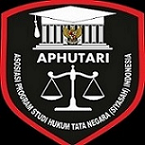Wajib Belajar Perfektif UU. No. 20 Tahun 2003
Abstract
Keywords
Full Text:
PDFReferences
Referensi
a. Sumber Buku
Andi Prastowo, Memahami Metode-Metode Penelitian.
Amiruddin dan Zainal Asikin, Pengantar Metodologi Penelitian Hukum, Jakarta: Raja Grafindo, 2010.
b. Sumber Jurnal
Enghariano Desri Ari Mhd. Idris, Karakteristik Manusia Dalam Karakteristik Al-Qur’an, Al Fawatih: Jurnal Kajian Al Qur'an Dan Hadis, Vol. 1, No. 1, 2020.
Gunawan Hendra, Eksistensi Hukum Islam Di Indonesia Dalam Pembangunan Nasional, Yurisprudentia: Jurnal Hukum Ekonomi, Vol. 4, No. 1, 2018.
Harahap Nurhotia, Perwalian Anak Dalam Tinjauan Kompilasi Hukum Islam, Jurnal Al-Qauniy : Ilmu-Ilmu Kesyariahan Dan Pranata Sosial, Vol. 4 No. 1, 2018.
Hasibuan Zulfan Efendi, Kedudukan Anak Angkat Dalam Hukum Islam, Jurnal Yurisprudentia: Jurnal Hukum Ekonomi, Vol. 5 No. 1, 2019.
Hasiah, Mengintip Keberadaan Anak Dalam Al-Qur'an, Jurnal El-Qanuniy: Jurnal Ilmu Kesyariahan Dan Pranata Sosial, Vol. 6, No. 1, 2020.
Kurniawan Puji, Marengge-rengge upaya membentu kebutuhan keluarga, Yurispundentia : Jurnal Hukum Ekonomi, Vol. 6, No. 1, 2020.
Nasution Muhammad Arsad, Perlindungan Pekerja Menurut Hukum Islam (Analisis terhadap Al-Qur’an dan Hadits), Yurispundentia: Jurnal Hukum Ekonomi, Vol. 5, No. 2, 2019.
Siregar Sawaluddin, Hakikat kuliah kerja lapangan dan perubahan Masyarakat, Jurnal Al-Maqasid : Jurnal Ilmu Kesyariahan Dan Keperdataan, Vol. 5, No. 2, 2019.
c. Sumber Lainnya
Wawancara, Bapak Ependi, Kepala Dinas Pendidikan Kabupaten Mandailing Natal pada tanggal 3 Agustus 2021.
Wawancara, Bapak Ahmad, Guru Sekolah Menengah Pertama Pada tanggal 12 Agustus 2021.
Wawancara, Abyu anak di Desa Gunung Tua Kecamatan Panyabungan Kabupaten Mandailing Natal.
Wawancara, Inah siswa di Desa Gunung Tua, pada tanggal 19 Agustus 2021.
Wawancara, Ibu Siti orang tua anak di Desa Gunung Tua, Pada tanggal 20 Agustus 2021.
DOI: https://doi.org/10.24952/el-thawalib.v3i1.5083
Refbacks
- There are currently no refbacks.









Editorial Office Board :
Kampus UIN Syekh Ali Hasan Ahmad Addary Padangsidimpuan
Jl. T Rizal Nurdin No.Km 4, RW.5, Sihitang, Padangsidimpuan Tenggara, Kota Padang Sidempuan, Sumatera Utara 22733
 Jurnal El-Thawalib is licensed under a Creative Commons Attribution-ShareAlike 4.0 International License.
Jurnal El-Thawalib is licensed under a Creative Commons Attribution-ShareAlike 4.0 International License.
View My Stats






